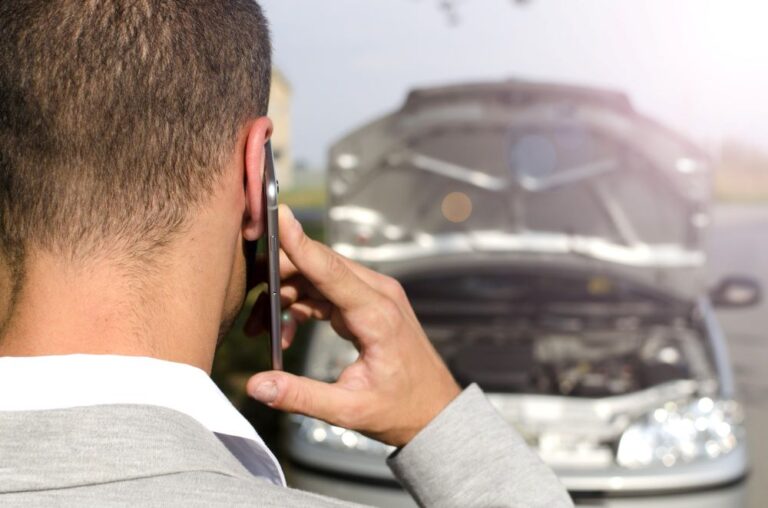Operating a delivery business is a high-stakes venture that involves managing vehicles, drivers, and customer expectations. One of the most critical concerns for delivery business owners is understanding liability and ensuring adequate insurance coverage when accidents occur. Without proper preparation, a single incident can lead to significant financial and legal repercussions. Here’s what business owners need to know about navigating insurance and liability in the delivery industry.
Understanding Liability in Delivery Accidents
When a delivery vehicle is involved in an accident, determining liability can be complex. Several factors come into play, including driver responsibility, vehicle ownership, contractual agreements with third-party companies, and local regulations. In general, liability may fall on:
- The Driver: If the accident was due to reckless driving, distraction, or negligence, the driver may be held personally responsible. However, liability often depends on whether they are classified as an employee or an independent contractor.
- The Delivery Business: If the driver is employed by a company, the business may be liable under the legal principle of “vicarious liability,” which holds employers responsible for their employees’ actions while on the job.
- A Third Party: If another motorist, pedestrian, or external factor contributed to the accident, liability may shift accordingly.
- The Customer or Recipient: In rare cases, liability may extend to a customer if they caused unsafe conditions that led to an accident, such as obstructing driveways or providing hazardous delivery locations.
Essential Insurance Coverage for Delivery Businesses
To mitigate financial risks, delivery business owners must carry the appropriate insurance coverage. Standard policies include:
- Commercial Auto Insurance
- Covers vehicles owned by the business in case of accidents, damages, or injuries.
- Required for fleet operations and typically provides higher coverage limits than personal auto insurance.
- Hired and Non-Owned Auto Insurance (HNOA)
- Protects businesses when drivers use personal or rented vehicles for deliveries.
- Useful for companies relying on independent contractors who may not have sufficient personal coverage.
- General Liability Insurance
- Covers third-party claims of bodily injury, property damage, and legal expenses.
- Essential for protecting against accidents that occur outside the vehicle, such as a driver injuring someone while delivering a package.
- Workers’ Compensation Insurance
- Provides medical benefits and wage replacement for employees injured on the job.
- Required in most jurisdictions for businesses with employees.
- Cargo Insurance
- Protects against loss or damage to goods being transported.
- Important for businesses handling high-value deliveries.
Steps to Reduce Liability Risks
While insurance provides financial protection, proactive risk management is crucial in minimizing accidents and liability exposure. Here are key strategies for delivery business owners:
- Implement Comprehensive Driver Training
- Regularly train drivers on defensive driving techniques, road safety, and company policies.
- Emphasize the importance of minimizing distractions, such as cellphone use while driving.
- Maintain Vehicles Properly
- Conduct routine inspections and address maintenance issues promptly.
- Keep records of all vehicle servicing to demonstrate compliance with safety standards.
- Utilize GPS and Telematics Technology
- Monitor driving behavior using GPS tracking and telematics to identify risky driving habits.
- Implement alerts for speeding, harsh braking, and other unsafe actions.
- Establish Clear Policies for Independent Contractors
- If using contract drivers, ensure agreements specify insurance responsibilities and operational guidelines.
- Require proof of adequate insurance coverage from contractors.
- Develop a Strong Accident Response Plan
- Train drivers on proper procedures in the event of an accident, including reporting steps and documentation requirements.
- Maintain a dedicated legal and insurance team to handle claims efficiently.
Handling an Accident: Best Practices
When an accident occurs, how a delivery business responds can significantly impact liability and claim resolution. Follow these best practices:
- Ensure Driver and Public Safety: The immediate priority is ensuring everyone involved is safe. Drivers should contact emergency services if needed.
- Document the Scene: Photographs, witness statements, and police reports can be critical in determining fault and supporting insurance claims.
- Notify the Insurance Provider Promptly: Delays in reporting accidents can complicate the claims process and result in denied coverage.
- Communicate with Legal Representation: If liability is disputed, having legal counsel can help navigate potential lawsuits or settlement discussions.
Safeguarding Your Delivery Business
Managing a delivery business involves inherent risks, and accidents are sometimes unavoidable. However, understanding liability, securing the right insurance coverage, and implementing proactive risk management strategies can help protect business owners from severe financial and legal consequences. By taking these precautions, delivery businesses can operate smoothly, safeguard their operations, and ensure both drivers and customers remain safe.


